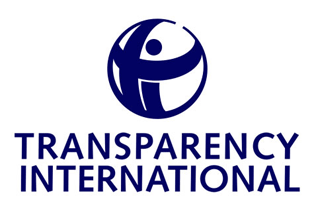Transparency.ge
Georgia ranks 51st in Transparency International’s 2012 Corruption Perceptions Index (CPI) which measures perceived public sector corruption in 176 countries. Georgia’s score in the 2012 survey is 52 on a scale of 0 (perceived to be highly corrupt) to 100 (perceived to be very clean).
Georgia currently ranks ahead of several EU member states, including the Czech Republic, Latvia, Slovakia, Romania, and Bulgaria, and slightly below Rwanda, Lithuania, Costa Rica, and Hungary. Georgia shares the 51st place in the ranking with the Seychelles. The 2012 CPI was calculated using an improved methodology which does not allow for a comparison with the data collected from previous surveys.
The countries with the lowest perceived corruption in 2012 are Denmark, Finland, New Zealand, Sweden and Singapore. Meanwhile, Myanmar, Sudan, Afghanistan, North Korea and Somalia are found at the bottom of the ranking.
Georgia has made significant progress since 2004 in tackling different forms of corruption, including petty bribery which has effectively disappeared from Georgians’ everyday life. The country’s anti-corruption legislation has also improved and transparency of government activities in a number of areas has increased. The most notable examples include the introduction of an innovative electronic procurement system, e-government tools, a database with public official’s asset declarations, and efficient services provided to citizens by public service halls.
At the same time, there have been important gaps in the country’s anti-corruption framework in 2004-2012. The weakness of parliament and the judiciary has undermined the democratic system of checks and balances and resulted in a dominant executive branch. A number of important government agencies, including the Prosecutor’s Office and the State Audit Office, have suffered from a lack of independence from the political leadership and have been used as political tools. Officials at the top of the executive branch have operated without proper accountability and oversight, creating significant opportunities for abuse of power and corruption. Some institutions led by powerful officials have been allowed to bypass existing transparency and accountability mechanisms. An imbalanced system of governance also resulted in extreme politicizing of public bodies, which was particularly evident during the last election campaign.
In order to address these gaps and ensure Georgia’s further progress in the fight against corruption, the Georgian authorities should:
Strengthen the role of parliament in overseeing other branches of government, including the activity of law enforcement and investigation bodies;
Promote a politically independent and strong judiciary and public trust in the courts by ensuring compliance with all procedures and a high level of transparency, especially in cases against former public officials, and reforming the practice of plea bargaining;
Set up an independent anti-corruption agency tasked with prevention, investigation, and public education;
Ensure professional and non-partisan operation of key government institutions, such as the Prosecutor’s Office and the State Audit Office, the National Bank, the State Procurement and Competition Agency and regulatory agencies, and refrain from any undue political interference in the work of these entities while providing them with sufficient resources;
Strengthen local government bodies and increase their transparency and accountability by making them directly elected;
Eliminate gaps both in law and in practice that result in government controlled entities bypassing existing transparency and accountability provisions such as requirements to have competitive electronic tenders to procure goods and services and to comply with freedom of information and conflict of interest rules;
Refrain from any undue interference in the media sector and allow for the development of a politically independent and sustainable media sector and a strong and independent Georgian Public Broadcaster.
About the CPI:
The CPI scores and ranks countries/territories based on how corrupt a country’s public sector is perceived to be. It is a composite index, a combination of surveys and assessments of corruption, collected by a variety of reputable institutions.
This year’s CPI scores were calculated with a new methodology, which means that the 2012 results are in no way comparable with those from 2011 or earlier years. However, the new methodology will make it possible to compare CPI results from different years from 2012 onwards.
Georgia’s score in the CPI 2012 is based on data from the following surveys:
- Bertelsmann Foundation Transformation Index (http://www.bti-project.org/index/)
- World Bank Country Policy and Institutional Assessment 2011
(http://www.worldbank.org/ida/IRAI-2011.html)
- World Economic Forum Executive Opinion Survey (EOS) 2012 (http://www.weforum.org/)
- World Justice Project Rule of Law Index (http://worldjusticeproject.org/rule-of-law-index)
- Global Insight Country Risk Ratings (http://www.ihs.com/products/global-insight/country-analysis)
- Freedom House Nations in Transit 2012 (http://www.freedomhouse.org/report/nations-transit/nations-transit-2012)




